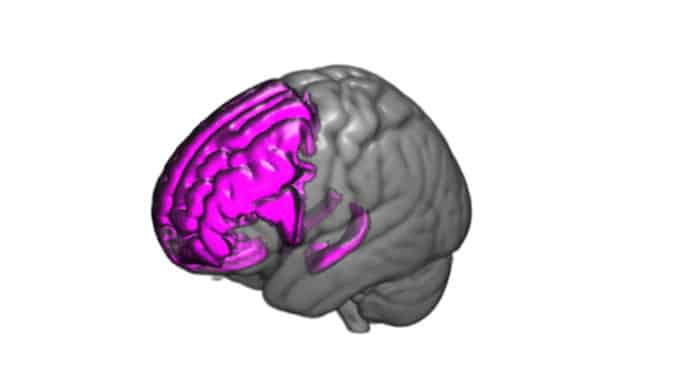22q11.2 deletion syndrome (22q11DS), the neurogenetic disorder with the highest genetic risk for schizophrenia. It can lead to the development of psychotic disorders in adolescence. An estimated one person in 2000 suffers from a microdeletion of chromosome 22.
The most common symptoms of psychotic disorders are hallucinations or delusions. Along with these symptoms, there is a gradual decline in intelligence quotient (IQ). On the off chance that current medication medicines effectively contain the psychotic symptoms, there is no hope to forestall the decline in intellectual skills prompting loss of autonomy.
The average IQ is around 100 points. However, for people who may develop a psychotic illness, such as those with a microdeletion of chromosome 22, the average drops to 70-80 points.
However, it is challenging to identify and treat individuals at risk of psychosis in the general population before the first psychotic symptoms. A new study by the University of Geneva (UNIGE), Switzerland, has discovered that a class of drugs can protect the development of intellectual abilities in people at risk of psychosis if prescribed before adolescence.
Scientists found that selective serotonin reuptake inhibitors (SSRIs) in ate childhood can reduce the deterioration of intellectual abilities. SSRIs are a class of drugs used to treat anxiety and depression. It is also found to have a neuroprotective effect on some brain regions affected by the psychotic illness.
Valentina Mancini, a researcher in the Department of Psychiatry at UNIGE Faculty of Medicine and first author of the study, said, “The problem is that when a psychotic disorder occurs, such as schizophrenia, the frontal brain lobe, and the hippocampus are particularly affected, which leads to the gradual deterioration of already below-average intellectual capacities. From then on, the average IQ drops to around 65-70 points, leading to a loss of autonomy that requires a protected environment. At present, drug treatments manage to contain psychotic symptoms, such as hallucinations, anxiety, or reality distortion. Still, no treatment can reduce the deterioration of affected people’s intellectual capacities.”
Two hundred patients with the microdeletion of chromosome 22 were followed for the past two decades. 30 to 40% of these patients had developed schizophrenia psychotic disorder.
Stéphan Eliez, professor in the Department of Psychiatry at UNIGE Faculty of Medicine, said, “Thanks to this cohort, we found that people suffering from this syndrome lost 7 to 8 IQ points from childhood to adulthood. This figure rises to 15 IQ points for those who developed psychotic disorders.”
Valentina Mancini said, “Two to three teenagers a year are exceptions, and even gained IQ points. Why?”
“We made a comprehensive analysis of these patients’ medical data to find out any common feature in the treatments prescribed to them by their GP.”
Two observations caught their attention: first is the prescription of small, regular doses of SSRIs in late childhood and throughout adolescence. The second observation is that a neuroleptic drug also positively affects if added to SSRIs during adolescence.
In terms of SSRIs, the younger the patients received this treatment, at around 10-12 years of age, the more the frontal lobe and the hippocampus – and therefore the intellectual capacities – were preserved from deterioration caused by the psychotic illness. Prescribing a neuroleptic drug also seems to have a positive effect if added to SSRIs during adolescence.
Stéphan Eliez said, “These two medications, especially when combined, have thus preserved the anatomical structure of the brain affected by the degradation responsible for the decline in intellectual capacity.”
“This study provides for the first time an indication of a neuroprotective preventive treatment for the development and preservation of IQ. It should be stressed that too great a deterioration of intellectual skills progressively leads to a very problematic psychosocial dependence. Here, we could succeed in protecting this population.”
In further studies, scientists want to determine whether the 3% to 4% of adolescents in the general population who develop psychotic symptoms would see this risk reduced by taking this drug.
Journal Reference:
- Mancini, V., Maeder, J., Bortolin, K. et al. Long-term effects of early treatment with SSRIs on cognition and brain development in individuals with 22q11.2 deletion syndrome. Transl Psychiatry 11, 336 (2021). DOI: 10.1038/s41398-021-01456-x
